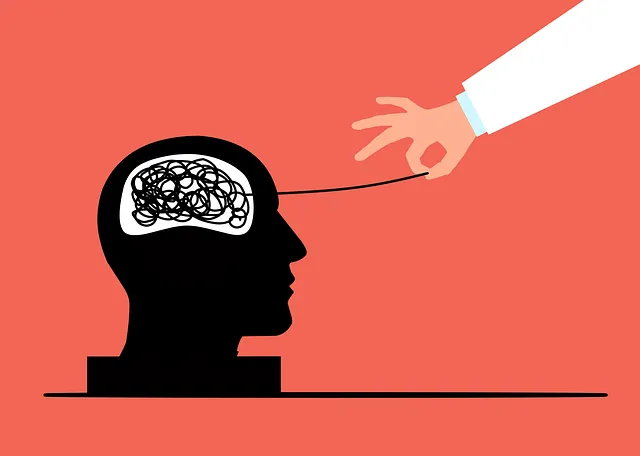Mental healthcare providers at Centennial Kaiser Permanente must prioritize cultural sensitivity to cater to diverse patients within their coverage area. This involves understanding and respecting cultural differences in mental illness perception and healing, adapting therapeutic methods to align with individual cultural contexts, beliefs, and values. Such an approach enhances patient outcomes, encourages positive thinking, and fosters personalized self-care routines. By addressing cross-cultural challenges ethically and employing tailored strategies, Centennial Kaiser Permanente ensures inclusive, accessible, and effective mental health coverage for diverse communities.
In today’s diverse society, cultural sensitivity is paramount in mental healthcare. Understanding and respecting cultural diversity shapes effective treatment plans and improves patient outcomes. This article explores key aspects of this evolving landscape, focusing on the impact of cultural sensitivity at Centennial Kaiser Permanente mental health coverage. We delve into strategies for culturally competent practice, navigate ethical challenges in cross-cultural therapy, and highlight how these approaches enhance patient care and satisfaction.
- Understanding Cultural Diversity in Mental Healthcare
- The Impact of Cultural Sensitivity on Patient Outcomes
- Navigating Ethical Challenges in Cross-Cultural Therapy
- Strategies for Culturally Competent Practice at Kaiser Permanente
Understanding Cultural Diversity in Mental Healthcare

In today’s diverse society, mental healthcare providers must embrace cultural sensitivity as an integral part of their practice. The Centennial Kaiser Permanente mental health coverage area, for instance, caters to a broad spectrum of individuals from various ethnic and cultural backgrounds. Understanding and appreciating these differences are essential in fostering effective treatment plans. Cultural sensitivity goes beyond mere awareness; it involves adapting therapeutic approaches to align with each patient’s unique cultural context, beliefs, and values.
This consideration is crucial as it can significantly impact a patient’s willingness to engage in mental health services. For example, different cultures may have distinct concepts of mental illness and healing, influencing how individuals express their struggles. Some prioritize collective support, while others seek individual solutions. By incorporating cultural sensitivity into practice, healthcare providers promote positive thinking and encourage the development of personalized self-care routines, enhancing overall well-being.
The Impact of Cultural Sensitivity on Patient Outcomes

Cultural sensitivity plays a pivotal role in shaping patient outcomes within mental healthcare practices. By embracing and implementing mind over matter principles that consider diverse cultural backgrounds, healthcare providers can significantly enhance the effectiveness of treatment. This approach ensures that patients from various ethnic, racial, and socio-cultural groups receive tailored care aligned with their unique needs and beliefs. For instance, the comprehensive mental health coverage offered by Centennial Kaiser Permanente recognizes these nuances, incorporating trauma support services and crisis intervention guidance to address the specific challenges faced by diverse communities.
The benefits of cultural sensitivity extend beyond improved patient satisfaction; they lead to more accurate diagnoses, better medication management, and higher rates of treatment adherence. When healthcare providers are attuned to cultural factors, they can foster stronger therapeutic alliances, encouraging patients to openly discuss their experiences and concerns. This, in turn, facilitates a deeper understanding of the patient’s mental health landscape, enabling more precise interventions and ultimately contributing to positive outcomes for all individuals seeking mental healthcare services.
Navigating Ethical Challenges in Cross-Cultural Therapy

In the realm of cross-cultural therapy, mental healthcare professionals navigate intricate ethical challenges that demand meticulous attention. As organizations like Centennial Kaiser Permanente expand their mental health coverage to diverse populations, understanding cultural nuances becomes paramount. Every patient brings a unique tapestry of experiences and beliefs shaped by their ethnic background, which can significantly influence their perception of mental illness and the effectiveness of treatment approaches. For instance, some cultures may emphasize spiritual or communal aspects of healing, while others primarily seek individual psychological interventions.
Addressing these challenges requires a thoughtful approach to risk management planning for mental health professionals. By integrating cultural sensitivity into practice guidelines and promoting emotional well-being promotion techniques tailored to diverse patient needs, burnout prevention becomes more achievable. This not only ensures effective therapy but also fosters trust and creates a safe space for patients from various cultural backgrounds to share their stories and receive the support they need.
Strategies for Culturally Competent Practice at Kaiser Permanente

At Kaiser Permanente, recognizing the importance of cultural sensitivity in mental healthcare, they’ve implemented several strategies to foster a more inclusive and competent practice environment. One key initiative is their comprehensive training programs that educate staff on various cultural perspectives and specific communities served. This includes learning about diverse belief systems, traditional healing practices, and unique challenges faced by different ethnic and socioeconomic groups.
Additionally, Kaiser Permanente offers tailored resources like the Crisis Intervention Guidance, Mental Wellness Journaling Exercise Guidance, and Trauma Support Services to address the specific needs of their diverse patient population. They emphasize a holistic approach, ensuring that mental health services are sensitive to cultural contexts and effectively meet the unique requirements of every individual, especially those who have historically been marginalized or underrepresented in healthcare settings.
Cultural sensitivity is an indispensable aspect of modern mental healthcare, especially within diverse communities. As organizations like Centennial Kaiser Permanente prioritize culturally competent practice, the benefits become evident in improved patient outcomes and ethical therapy sessions. By understanding cultural diversity, navigating ethical challenges, and implementing specific strategies, healthcare providers can ensure that all patients receive tailored, respectful, and effective treatment. This approach not only enhances individual well-being but also fosters a more inclusive mental healthcare system that reflects the richness of our communities.






